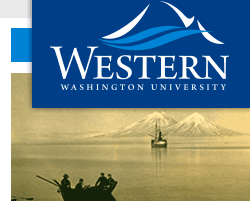Relating to Race: The College of Ethnic Studies at Western Washington State College
Michael M. Vendiola is from the Swinomish, Lummi and Visayan (Filipino) nations. He is the current Program Manager of the Office of Native Education in the Washington State Office of the Superintendent of Public Instruction. He recently completed three years as the Swinomish Communications director and editor of qyuuqs News for the Swinomish Indian Tribal Community. Prior to Swinomish he served 13 years as the coordinator for the Ethnic Student Center at Western Washington University. He has worked at different levels of higher education for over 17 years for Whatcom Community College, Skagit Valley College, Northwest Indian College and Western Washington University. Michael holds a Bachelor’s degree in American Cultural Studies with a Native American Studies emphasis and a Master’s degree in Adult Education with an Instructional Technology emphasis. He is a doctoral student at the University of Washington in the College of Education’s Educational Leadership and Policy Studies program. Michael frequently serves as an emcee at pow wows, community events, & conferences, performs at public poetry readings & comedy venues, presents keynotes and workshops at various conferences & events, and is a professional working DJ. He likes to talk about wellness, community activism, education as empowerment, leadership, intergenerational partnerships, and community building.
Description
In this presentation Michael Vendiola examines the case of the College of Ethnic Studies at Western Washington State College (CES-WWSC) through primary and secondary sources.
In the mid-1960s American institutions of higher education witnessed the emergence of Black Studies and Ethnic Studies. Factors such as the rise of the Civil Rights Movement, the Black Power Movement and people of color movements, federal policy changes, philanthropic influences, and a general social change action set the stage for Black and Ethnic Studies to develop.
The CES-WWSC is similar to other Ethnic Studies programs in that its development can be traced to federal policy changes, active faculty advocates, and (somewhat) of an urban influence. The case is unique to other Ethnic Studies programs in that it held a college status (one of two identified cases), the timeline of development was short compared to other cases, and the rural location of Bellingham, Washington is a rarity amongst most of the cases. Vendiola's presentation focuses on the initial development of the CES at WWSC. His hope is that his research will develop some implications for the current dialogue on Ethnic Studies and the greater issue of race relations.
Relating to Race: The College of Ethnic Studies at Western Washington State College
Washington State Archives. Goltz-Murray Archives Building, Bellingham (Wash.)
In this presentation Michael Vendiola examines the case of the College of Ethnic Studies at Western Washington State College (CES-WWSC) through primary and secondary sources.
In the mid-1960s American institutions of higher education witnessed the emergence of Black Studies and Ethnic Studies. Factors such as the rise of the Civil Rights Movement, the Black Power Movement and people of color movements, federal policy changes, philanthropic influences, and a general social change action set the stage for Black and Ethnic Studies to develop.
The CES-WWSC is similar to other Ethnic Studies programs in that its development can be traced to federal policy changes, active faculty advocates, and (somewhat) of an urban influence. The case is unique to other Ethnic Studies programs in that it held a college status (one of two identified cases), the timeline of development was short compared to other cases, and the rural location of Bellingham, Washington is a rarity amongst most of the cases. Vendiola's presentation focuses on the initial development of the CES at WWSC. His hope is that his research will develop some implications for the current dialogue on Ethnic Studies and the greater issue of race relations.
